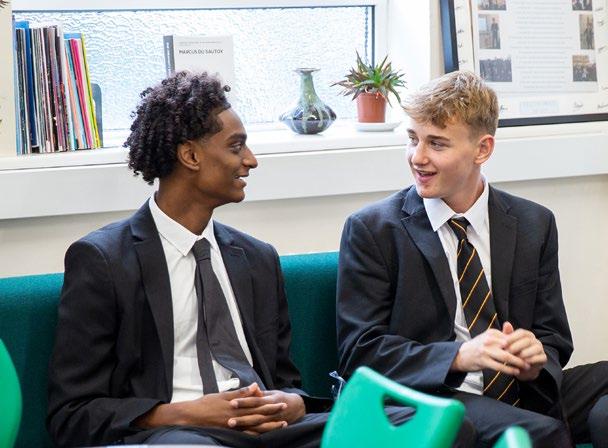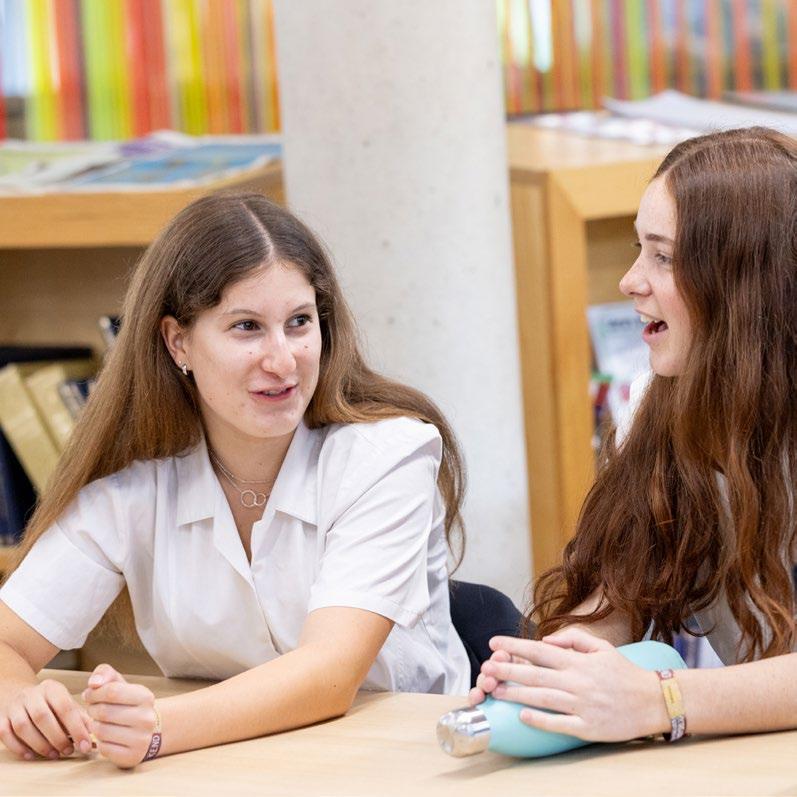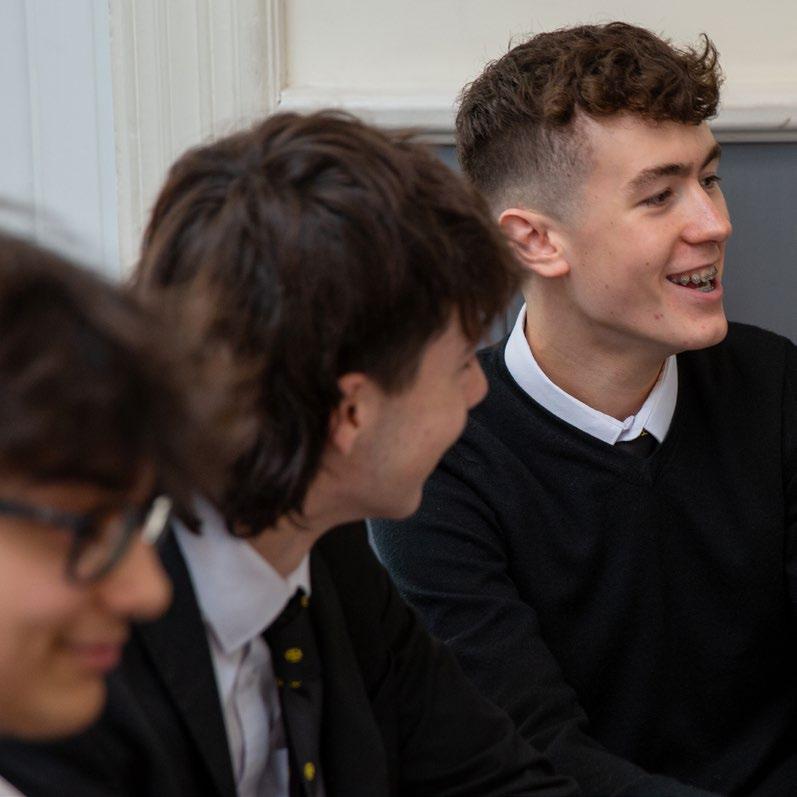SIXTH FORM... YOUR PERFECT



Welcome to the St Benedict’s Sixth Form prospectus. I hope you find it an interesting and useful publication as you consider your options for post-GCSE study.
These final two years of your schooling are an incredibly exciting period, in which you can delve deeply into the academic subjects which interest you the most, and gain a profound understanding of them. Sixth Form is a time when the joy of learning really comes to the fore, and here at St Benedict’s we offer a wide range of options, taught by specialists who are all passionate about their subjects and are highly skilled in helping you to learn and understand.
As well as great teaching, at St Benedict’s you can expect excellent academic and pastoral support during your time in the Sixth Form. We are not a school which leaves its students to flounder when they encounter difficulties; rather, we will accompany you every step of the way to results day. The Directors of Sixth Form and the team of tutors will guide and support you throughout your journey, including offering expert advice on your options beyond school.
And finally, here at St Benedict’s you can benefit from an incredibly wide range of co-curricular activities and opportunities to develop your leadership skills, all within the framework of an inclusive, diverse and friendly community. I do hope that you will choose St Benedict’s for your Sixth Form years, and I look forward to supporting you in your journey.

Joe Smith Headmaster

St Benedict’s Sixth Form will give you an outstanding A level education and provide excellent preparation for university and the workplace. Most of our students will leave with exceptional A level grades and choose to go on to stimulating courses at prestigious universities.
But we offer so much more.
We give you extensive opportunities for personal development, with a range of inspirational visiting speakers, educational trips, sporting and co-curricular activities.
In keeping with our Catholic, Benedictine ethos, you will also be encouraged to develop your leadership skills, for the benefit of others. And you’ll build new friendships with your peers, and great working relationships with your teachers.
Your Sixth Form years will fly by. They are the most exciting, stimulating and crucial years of your education – years in which you study what really interests you, discover new aptitudes, and stretch yourself to achieve beyond what you’d previously imagined.
Our sixth formers are individuals, each with their own interests and ambitions, strengths and talents. We will help you find those talents and develop them to the full.
We’re really looking forward to working with you.


Alex Heald Sarah-Jane Sorohan Director of Sixth Form Deputy Director of Sixth Form

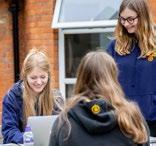


Our dedicated Sixth Form facilities, such as the study centre, common room and café, give a sense of independence within the wider School community.
Tess (Upper 6th student)
At St Benedict’s Sixth Form, you are… SUPPORTED…
personal tutor
You will join a form group with students from years 12 and 13 who share your academic interests, led by a personal sixth form tutor who will support you pastorally and academically. Your personal tutor will be a senior teacher or head of department; so, you will have daily academic support and stretch, and subject-specific help with your university application. They will guide you every step of the way to university.
Every student is unique and so is their path. We give careers advice from start to finish and beyond, with two dedicated careers professionals helping you choose university courses. We’ll help you to think about your personal statements, practise interviews, write your cv and even apply for degree apprenticeships. And we’ll connect you with our extensive Alumni and parent community. Our ‘open door’ policy applies to students and parents alike, and we use coaching and facilitation, one-to-one and in groups, to develop the core transferable skills required to succeed in the constantly shifting workplace.
Our Sixth Form team
In addition to the Heads of Sixth Form and your tutor, we have a school counsellor, a dedicated Sixth Form special needs teacher, and teacher mentors. So, if you need to talk, there’s always someone to listen.
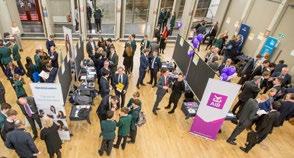
“ ”
The careers guidance arrangements are a significant strength of the school. A well thought out strategy plan covers all year groups, tailoring advice and opportunity. It encourages high levels of ambition, provides knowledge and experience of work, and links consistently with a wide range of external opportunities and resources.
“ ISI
Inspection Report 2024
”
There are lots of opportunities for work experience, often through the Old Priorian (alumni) network, which is very strong.
Tom (Upper 6th student)

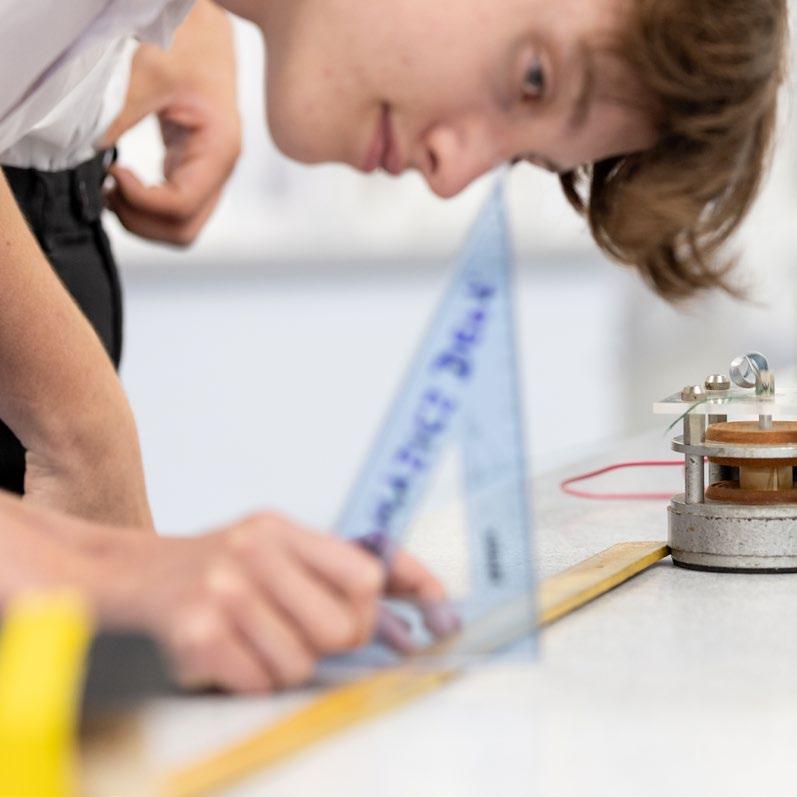
We want our students to think for themselves, to be curious, and to enjoy learning – qualities which will remain with you for the rest of your life.
Oxbridge, Medics and Veterinary Science applications
Applying for Oxbridge and other top universities, and for courses like Medicine and Dentistry, demands commitment and preparation. We offer outstanding support for students who are interested in these highly competitive fields. Intensive tutorials by specialist teachers, academic extension and interview preparation are provided from the very start of your Sixth Form career. Our Helikon centre, law, engineering and debating societies will develop your skills of thinking and argument.
The Extended Project Qualification (EPQ)
You can develop important academic skills, such as independent thinking, presentation and research skills, by completing an Extended Project Qualification alongside your A levels. Many of our students choose this option and we have an excellent track record of success.
MOOCs (Massive Open Online Courses)
MOOCs can offer an extra dimension to your education at St Benedict’s. They can be related to your A level study and help you to achieve a specific goal – such as Medical Ethics for future medics – or they can add another dimension to your learning and university application – for example, learning a new language.
“ ”
There is so much going on in the Sixth Form which deepens your subject knowledge and broadens your general education, such as talks from visiting speakers, debates and workshops. All the teachers provide a lot of support and you learn well beyond the syllabus.
Evan (Upper
6th student)

Personal Development
This really matters to us. St Benedict’s will enable you to develop your unique talents and find new ones; to gain confidence in who you are; to acquire the resilience and determination you’ll need to see you through life’s challenges; and to show leadership and compassion to others.
Our Sixth Form students can represent St Benedict’s in our ‘Main’ sports programme throughout the year, in addition to some competitive opportunities within our ‘Minor’ sports, which include football (during Michaelmas Term), circuit & gym training, and swimming.
Additionally, we offer an extensive co-curricular sports programme which takes place before and after school, as well as at lunch times. The programme consists of badminton, basketball, cross-country running, dance, tennis, and volleyball, alongside access to our specialist strength & conditioning and fitness sessions.
Main Sports by term:
Michaelmas Lent Trinity
Rugby (full sided) Football Athletics
Hockey Rugby (full & 7s) Cricket
Fencing Fencing Tennis
Netball Hockey
Netball




“
The arts are incredibly strong here. The drama productions involve hundreds of people, not just performing on stage but behind the scenes. And if you’re a musician there’s something for everyone.
Isabella (Upper 6th student)
”

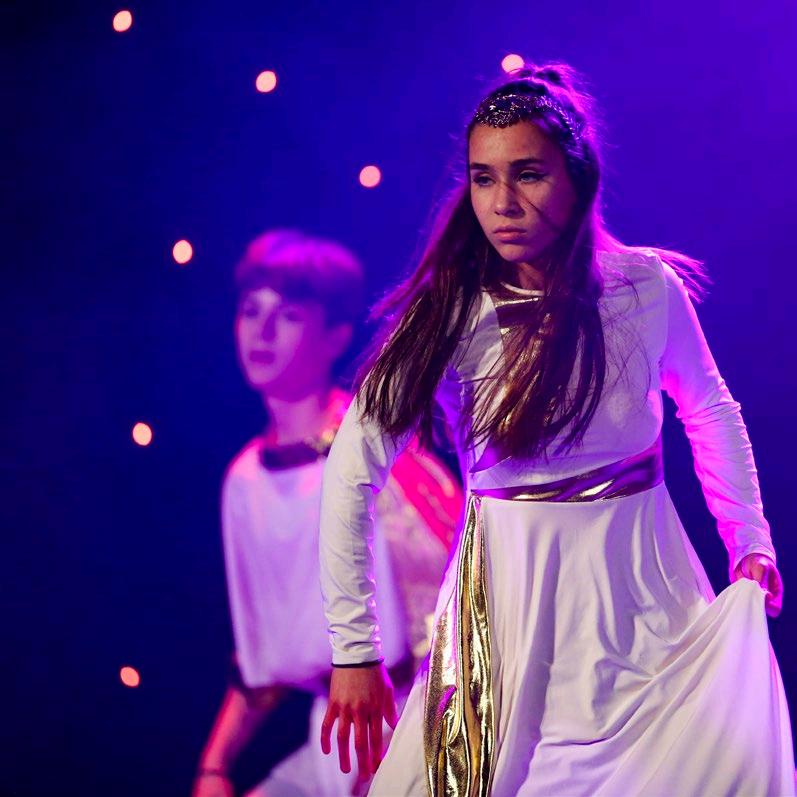
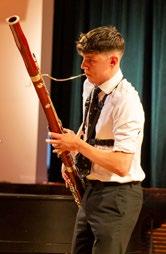
Music is a great strength at St Benedict’s. Our excellent team of visiting music teachers provides instrumental and singing lessons each week. You can join one of our singing ensembles, from our large Concert Choir to our Girls’ Choir or a capella group. For those who play an instrument, you can play in our orchestra, string ensemble, Big Band, wind band or brass ensemble, with many smaller groups alongside, or even form your own group and play at one of our open mic nights. Our annual competitive music festival, judged by visiting professionals, culminates in just one of our many fabulous concerts throughout the year.

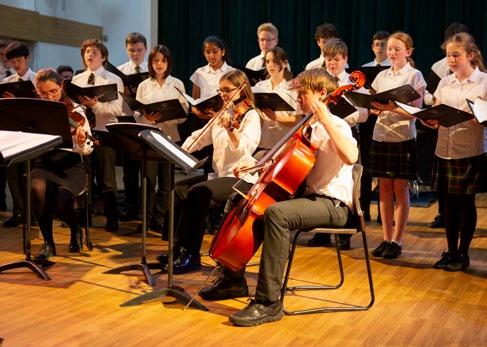
There is a tradition of outstanding drama at St Benedict’s. Our sixth formers always lead the show in our annual productions, such as The Addams Family, Joseph and the Amazing Technicolor Dreamcoat, High Society and Les Misérables






The Duke of Edinburgh’s award scheme

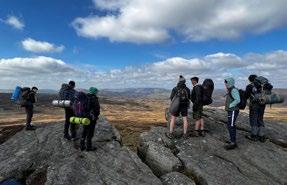
There is a really nice balance of everything – academic stretch, opportunities and activities. This produces well-rounded people; not just students with top grades but individuals with unique interests and passions. St Benedict’s helps you to find those passions.
Harry (Upper 6th student)
Co-curricular opportunities
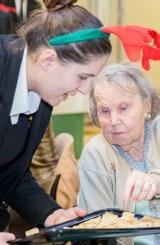
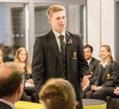
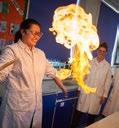


At St Benedict’s we don’t limit learning to the classroom. Our sixth formers travel around the world to every continent: our biologists to Madagascar, our geographers to volcanoes in Iceland and the Azores, our politics students to visit Congress in Washington and the United Nations in New York. For classicists, we offer trips to Rome and Greece, and we have even taken our historians, geographers and business students to China, Vietnam and South Korea.
Every year we welcome numerous eminent speakers as part of our lecture series, with sixth formers interviewing journalists, businesswomen, scientists and politicians. And sixth formers themselves give talks to other students in our Helikon Centre and as part of our EPQ and MOOC programme.
Our Sixth Form Debating Society meets fortnightly and participates in British Parliamentary competitions organised by University College London, the Oxford Union and the Emmaus Partnership. We also send teams led by sixth formers to conventions of the Model United Nations. You will emerge from these events as confident and formidable public speakers, ready to pitch your case in any situation life throws at you.



of Edinburgh
Manchester University The University of Liverpool University of Glasgow
University of Leeds
University of York
University of Sheffield
University of Loughborough Lancaster University
University of Birmingham/ Aston University
Andrews Leicester University
University of Warwick
University of Nottingham/ Nottingham Trent University
University of Cambridge
University of Southampton Oxford University Cardiff University
University of Bristol/ UWE Bristol
University of Bath
UCL
Imperial College London
University of Exeter
University of Sussex
King’s College London
London School of Economics and Political Science Royal Holloway
Leadership
We expect our sixth formers to take the lead. You will have the opportunity to take on positions of responsibility, whether it’s helping with younger pupils, assisting with events or welcoming visitors.
As a Catholic, Benedictine community, St Benedict’s encourages everyone to offer mutual service within the school and beyond. You can mentor younger students and take part in voluntary work programmes in the local community. All of this helps you to develop leadership qualities and initiative which will be valuable in later life.
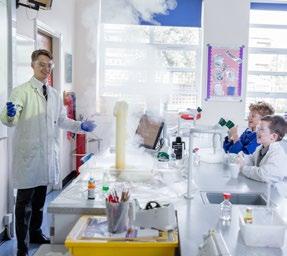
The alumni community
St Benedict’s is a community where former students can stay in touch with each other and with the school community through St Benedict’s Connect, a unique platform which helps you to make professional connections and share news. The Old Priorian Association holds a variety of events, such as reunion dinners, networking events and sports fixtures.
“ ”
No matter what we all did, whether we went travelling, went off to university or started work, we would always come back to Ealing and catch up. It was definitely St Benedict’s that formed these bonds. It’s because of St Benedict’s that I have friendships that will last a lifetime.
Lirim (Former pupil)
Students take 3 A level courses. We strongly advise students to study three A levels as this is the required entry criterion for most universities. Academically very able students who wish to study 4 A levels should contact the school for discussion. Students opting for Further Mathematics should take 4 A levels, including Mathematics and Further Mathematics.
For A level, you must achieve a minimum of 30 points from your five highest GCSE/IGCSE results if you are an internal candidate, and a minimum of 35 points from your five highest GCSE/IGCSEs if you are an external candidate.
To study Biology, Physics or Chemistry A level, you must also achieve at least a grade 7 in Mathematics GCSE/IGCSE and a grade 7 in the chosen subject.
To study Mathematics A level, you must achieve at least a grade 7 in Mathematics GCSE/IGCSE, although we strongly advise that you only pursue this course if you achieve a grade 8.
To study Further Mathematics A level you must achieve at least a grade 8 in Mathematics GCSE/ IGCSE, although we strongly advise that you only pursue this course if you achieve a grade 9.
For the BTEC Sports Science pathway, you must achieve a minimum of 30 points from your 5 highest GCSE/IGCSEs if you are an internal candidate or a minimum of 35 points from your five highest GCSE/ IGCSEs if you are an external candidate. This must include at least a grade 6 in GCSE PE. We also ask that you attend an interview to assess your suitability for this course.
Academic scholarships may be awarded to internal and external candidates who sit the Sixth Form Scholarship examination, and whose overall performance is judged to reach the necessary standard for such an award. The examination is held in November.
Bursaries are offered to eligible parents of gifted young people. Applications are made in November in the year prior to Sixth Form entry.
For further information, and for application forms, please see our website.
“
Lots of schools promised me top grades. I gained these at St Benedict’s and so
(Former pupil)
much more.
”
Specification title & Examination Board: A level Art & Design: Edexcel/Pearson
Recommended GCSE grades/Course entry requirements
The Art Pathway is suitable for students having completed a GCSE Art, Craft & Design or Fine Art course and achieved at least a Grade 6.
The Design Pathway is suitable for students having completed a GCSE Graphic Communication or 3D Design course, or GCSE Design Technology and achieved at least a Grade 6.
Course content
The A level Art & Design course is delivered through two separate pathways to build upon the students’ skills and understanding gained at GCSE:
ART PATHWAY
FINE ART: painting and drawing, printmaking, sculpture.
DESIGN PATHWAY
THREE-DIMENSIONAL DESIGN: product design, furniture design, jewellery and interior design.
GRAPHIC DESIGN: advertising, illustration, packaging, typography and multimedia.
Course outline
ART PATHWAY
Term 1: THE FIGURE
This project concentrates on expanding the breadth of the students’ practical skills in Oil Painting and Sculpture. The project culminates in the realisation of a high-quality final response for each technique presented for assessment.
2:
In this project students explore the theme of Identity through the genre of still life by exploring techniques learned in the Michaelmas Term, before committing to a final idea to develop towards a final outcome. The focus of this project is to develop the students’ ability to analyse and engage with concepts that underpin contemporary Art practice.
DESIGN PATHWAY
Term 1: FUNCTION & FORM This project concentrates on expanding the students’ understanding of the interplay between function and form in two projects: one focusing on typography and contemporary graphic design, and the other on furniture design.
Term 2: CAD into CAM Students explore how to develop ideas from CAD (Computer Aided Design) to realise 3D models and prototypes using CAM (Computer Aided Manufacture) using a Laser Cutter and 3D Printer.
BOTH ART & DESIGN PATHWAYS
Term 3 & 4: COURSWORK PROJECT Students choose their own theme to explore for the main coursework project, producing a written Personal Study (1000–3000 words) alongside their studio practice.
Term 5 & 6: EXTERNALLY SET ASSIGNMENT
Students use the preparatory period to work through ideas with support from the teacher, culminating in the creation of a final response in 15 hours under examination conditions.
How Art will be examined
• 60% Coursework
• 40% Externally Set Assignment
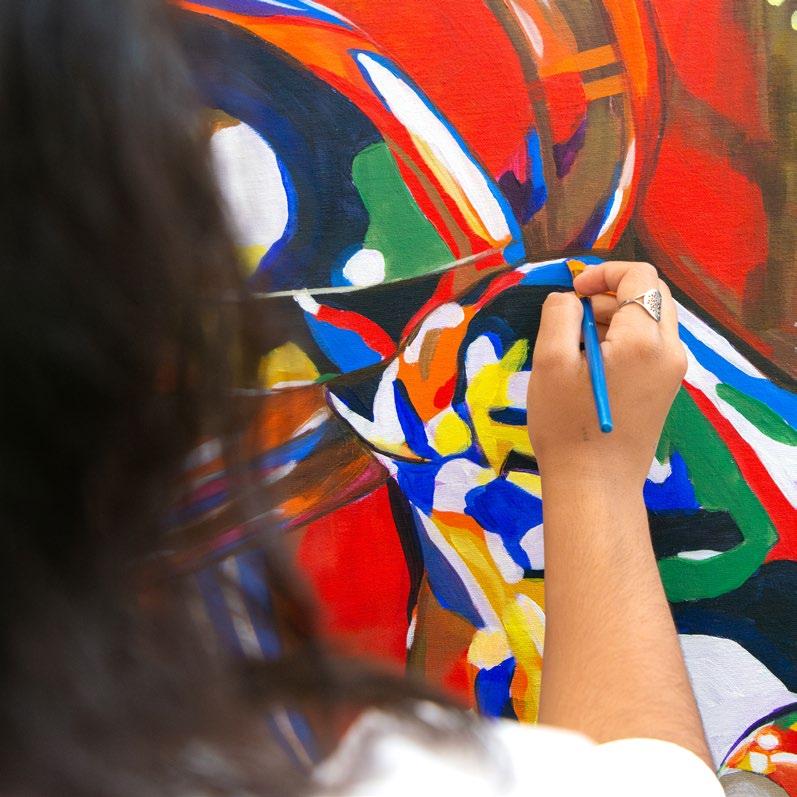
An A level in Art & Design opens a wealth of opportunities to follow a creative pathway at university and move into creative careers. Popular degree courses our students move onto include architecture, design engineering, product design, graphic design, advertising, illustration, animation, game design and multimedia.
Specification title & Examination Board:
A level Biology 7402 – AQA
Recommended GCSE grades/Course entry requirements
To ensure you are well-prepared for the challenges of A level Biology, you must have a minimum of:
• Mathematics: Grade 7
• Biology: Grade 7
Course content
The A level Biology course offers an in-depth exploration of key biological concepts and processes. Over two years, students will study various topics, develop practical skills, and engage in fieldwork to gain a comprehensive understanding of the biological sciences.
Course Ooutline
Year 1 Topics:
1. Biological Molecules:
• Structure and function of carbohydrates, lipids, proteins, and nucleic acids.
• Enzyme activity and biochemical pathways.
2. Cells:
• Cell structure and function, cell division, and cell specialisation.
• Transport mechanisms in cells and across cell membranes.
3. Organisms Exchange Substances with Their Environment:
• Gas exchange in plants and animals.
• Transport systems in plants and animals.
4. Genetic Information, Variation, and Relationships Between Organisms:
• DNA, RNA, and protein synthesis.
• Genetic diversity and natural selection.
Year 2 Topics:
1. Energy Transfers in and Between Organisms:
• Photosynthesis and respiration.
• Energy flow through ecosystems and nutrient cycles.
2. How Organisms Respond to Changes in Their External Environments:
• Nervous and hormonal coordination.
• Homeostasis and feedback mechanisms.
3. Genetics, Populations, Evolution, and Ecosystems:
• Inheritance patterns, population genetics, and speciation.
• Conservation biology and the impact of human activity on ecosystems.
4. The Control of Gene Expression:
• Gene regulation, mutation, and the role of oncogenes in cancer.
Residential Fieldwork: Fieldwork is a compulsory and integral part of the A level Biology course. This experience allows students to examine organisms in their natural habitats and investigate ecological relationships, reinforcing theoretical knowledge with practical application.
How Biology will be examined
A level Biology is assessed through three written examinations at the end of the two-year course:
• Paper 1: Topics 1–4, including relevant practical skills (35% of A level).

• Paper 2: Topics 5–8, including relevant practical skills (35% of A level).
• Paper 3: Comprehensive assessment covering topics 1–8, including a 25-mark essay (30% of A level).
In addition to written exams, students must complete a series of practical assessments, which are reported separately and do not contribute to the final grade.
A level Biology opens doors to numerous career paths and higher education opportunities. Students can pursue degrees in fields such as medicine, veterinary science, biomedical research, environmental science, and biotechnology. The analytical and practical skills gained from this course are highly valued in scientific research, healthcare and environmental management sectors.
Specification title & Examination Board: A level Business (7132) – AQA
Recommended GCSE grades/Course entry requirements
No previous study of business is required. Students should achieve at least a grade 6 in Mathematics to study Business.
Course overview
The Business A level revolves around decision making. How do leaders make decisions? Should they consult subordinates or inform them of their decisions? What are the influences on how leaders make decisions? What information do they consider? By the end of the A level, students are expected to make fully justified decisions based on the information provided and supported by the business theorists they study. They need to identify the best strategy to achieve the business objectives. The course includes 10% maths, which revolves around adding, subtracting, dividing, and multiplying. Graphs and other data also need to be interpreted.
Course content
The course considers business objectives and how they can be achieved. It considers the four functional areas within a business – marketing, human resources, finance, and operations – and how leaders’ decision making can improve the performance of each functional area. It also considers internal and external influences on the functional areas. Strategy – a medium to long term plan to achieve the businesses objectives – is a central to the course and students also study strategic drift, which is how and why strategies go wrong. Throughout the
course students need to support their answers with examples of real businesses and business theory.
Course outline
The Lower Sixth starts with ‘what is a business?’ and goes on to consider different types of business structures and the advantages and disadvantages of each type. Business finance includes cash flow, breakeven, sources of finance, financial ratios, and types of profit. Operations – how to produce a product or a service – covers, amongst other things, lean production, quality, productivity, capacity, and supply chains. Automation and robotics are also assessed. Human resources includes how to motivate employees, leadership styles, recruitment, retention and remuneration (pay and non-financial benefits). The value of primary and secondary market research, quantitative and qualitative information and advertising are all considered as are price and income elasticity of demand.
The Upper Sixth focuses on decision making through objectives and strategy. The students consider influences on strategy, including social and technological change, such as migration, urbanisation and AI, and legal and political influences, such as Brexit and the impact of health and regulation. The students also consider how to compete – low cost or differentiation – and which market to compete in. Other topics include the importance of innovation and a more in-depth look at human resources. This includes industrial relations and HR flow. Students also consider economic influences on business and international trade. They assess how businesses grow, and why they may or may not wish to grow as well as internal and external pressures for change. The course is supported throughout by business theorist and mathematical calculations, and there is an emphasis on the role and the value of leadership.

• There are 3 two-hour exams at the end of the Upper Sixth.
• There is no coursework and we do not take any external public exams in the Lower Sixth.
Every year several business students go on to study business and related subjects at university. These include international business and management science, though joint degrees, such as business and marketing, are also popular. We target the top business schools, such as Aston Business school. One Aston graduate has secured a career in L’Oréal’s marketing department and another is a broker in the City of London.
Specification title & Examination Board:
A level Chemistry (7405) – AQA
Recommended GCSE grades/Course entry requirements
To enrol in A level Chemistry, students are expected to have achieved at least a grade 7 in GCSE Chemistry and a grade 7 in GCSE Mathematics.
Course content
A level Chemistry provides an in-depth understanding of the principles that underpin chemical reactions and processes. The course covers a range of topics including physical chemistry, inorganic chemistry, and organic chemistry. Students will explore atomic structure, chemical bonding, energetics, kinetics, equilibrium, redox reactions, and more. Practical experiments and investigative skills are integral parts of the curriculum, helping students apply theoretical knowledge in real-world contexts.
Course outline
A level Chemistry is divided into three main sections: physical chemistry, inorganic chemistry, and organic chemistry.
Physical chemistry involves studying atomic structure, the periodic table, and chemical bonding. Students will delve into energetics, kinetics, and the principles of chemical equilibria, including Le Chatelier’s principle and the equilibrium constant. Thermodynamics and electrochemical cells are also key areas of focus.
Inorganic chemistry examines the periodic table in greater detail, exploring the properties and reactions of elements in different groups, such as Group 2 and the transition metals. Students will also study the chemistry of various ions in aqueous solution.
Organic chemistry focuses on the structure, properties, and reactions of carbon-based compounds. Topics include alkanes, alkenes, alcohols and organic synthesis. Analytical techniques such as infrared spectroscopy, mass spectrometry, and nuclear magnetic resonance (NMR) spectroscopy are also covered.
Throughout the course, practical skills are developed through hands-on experiments. Students will learn to design experiments, collect and analyze data and draw conclusions. These skills are assessed through both coursework and written exams.
The A level Chemistry course is assessed through three written exams at the end of the second year. These exams cover the entire course content, including practical skills:
• Paper 1: This paper covers physical chemistry topics, inorganic chemistry, and relevant practical skills. It is a two-hour examination worth 105 marks, and it accounts for 35% of the A level.
• Paper 2: This paper covers organic chemistry topics and relevant practical skills. It is a two-hour examination worth 105 marks, and it accounts for 35% of the A level.
• Paper 3: This paper assesses practical skills and data analysis across the entire syllabus. It includes

questions on practical techniques, data analysis and synoptic questions that integrate topics from across the course. It is a two-hour examination worth 90 marks, and it accounts for 30% of the A level.
A level Chemistry is highly regarded by universities and employers. It provides a strong foundation for further study in fields such as chemistry, medicine, pharmacology, environmental science, and chemical engineering. The analytical, problemsolving and practical skills gained are valuable in a wide range of careers.
Specification title & Examination Board:
A level Classical Civilisation – OCR
Recommended GCSE grades/Course entry requirements
No previous study of Classical Civilisation is required. A grade 6 in any subject which requires essay writing is required to access this course.
Course content
Studying Classical Civilisation at A level offers a unique and enriching exploration of ancient cultures that have significantly shaped modern society. It provides a deep understanding of the literature, history and culture of ancient Greece and Rome, fostering critical thinking and analytical skills. The course is incredibly interdisciplinary, combining elements of literature, history, art, and archaeology, making it ideal for students with diverse interests. No knowledge of Latin or Greek is required: all sources are read in translation.
Course outline
1. The World of the Hero
An in-depth study of Homer’s Odyssey and Virgil’s Aeneid.
This component is solely focused on the study of literature in translation.
These poems are some of the greatest works of western literature, and tell the story of two journeys from Troy: the Greek Odysseus’ attempt to get back to Ithaca after the Trojan War, and the Trojan Aeneas’ struggle to find a new home in Italy after the destruction of all he holds dear.
2. Culture and the Arts – Greek Theatre
This involves the study of visual and material culture, combined with the study of literature in translation.
The Athenians invented drama and their comedies and tragedies still resonate today. This module explores the cultural and physical context, as well as three great plays: Euripides’ Bacchae, Aristophanes’ Frogs, and Sophocles’ Oedipus the King
3. Beliefs & Ideas – Politics of the Late Republic
The First Century BC is the best documented in Roman history, and saw the fall of the Republican system of government (elected officials serving for fixed terms) and the emergence of a sole ruler (an emperor). We examine how this came about, as greed, ambition and class tensions tore Rome apart.
How Classical Civilisation will be examined
• Three written examinations at the end of the Upper Sixth.
• There is no coursework.
Careers & HE
Studying Classical Civilisation equips you with transferable skills such as critical analysis, research, writing and a deep understanding of cultural contexts. These skills are highly valued in many fields, enhancing your employability in a diverse job market.

Specification title & Examination Board:
A level Computer Science (7517) – AQA
Recommended GCSE grades/Course entry requirements
Recommend Grade 6 or above at GCSE in Computer Science.
Course content
The Computer Science A level covers fundamental computer science concepts, including data representation, computer organisation and architecture, communication and networking, and algorithms and programming. Students learn about the hardware and software components of computer systems, how data is stored and processed and the principles of computer programming. The course also explores topics like cybersecurity, legal and ethical issues in computing and the impact of digital technologies on society. Through a practical programming project, students develop skills in designing, implementing and testing software solutions. The curriculum provides a strong foundation for further studies in computer science or related fields.
Course outline
The Computer Science A level is a program of learning that covers a wide range of fundamental computer science concepts and principles. The curriculum includes the following core elements:
Fundamentals of Programming: Students learn the basics of computer programming, including control structures, data types, functions, objectoriented programming techniques and functional programming techniques.
Data Structures and Algorithms: The course delves into the theory and implementation of data structures, such as arrays, lists, and trees, as well as the design and analysis of algorithms for solving complex problems.
Computer Systems and Architecture: Students explore the inner workings of computer hardware and software, including data representation, computer organization and the role of operating systems.
Communication and Networking: The curriculum examines the principles of computer networks, communication protocols and the fundamentals of databases and big data.
Theory of Computation: Students study the theoretical foundations of computer science, including the limitations and capabilities of computing systems.
Consequences of Computing: The course also covers the social, ethical, and legal implications of technology, encouraging students to consider the broader impact of computing on society.
Practical Project: A significant component of the course (20%) is the non-examined assessment, in which students apply their programming and problem-solving skills to design, develop and evaluate a software solution to a real-world problem.
Throughout the program, students cultivate a range of essential skills, including computational thinking, algorithm design, data analysis and a systematic approach to problem-solving.
How Computer Science will be examined
• One on-computer examination – a skeleton program is provided in September of the Upper Sixth.
• One written examination
• A software project on a theme chosen by the candidate

Careers & HE
An A level in Computer Science opens the door to a wide range of careers in the tech & engineering industries, including software engineering, web development, data analysis, cybersecurity and IT management. It also provides a strong foundation for further study at the university level, with opportunities to pursue degrees in computer science, information technology, digital media, engineering and related fields.
Specification title & Examination Board:
Drama and Theatre Studies – Edexcel
Recommended GCSE grades/Course entry requirements
No previous study of drama at GCSE is required, but we require either at least a grade 6 in GCSE Drama or some substantial evidence of drama performance experience (such as LAMDA).
Course content
Studying A level Drama offers an immersive exploration of theatre, fostering creativity, teamwork and critical thinking. This course enhances practical skills through devised and scripted performances, as well as design elements, including lighting, stage design and sound. By engaging with texts such as Equus and Woyzeck and studying practitioners like Artaud, Berkoff, and Stanislavski, students gain insights into both contemporary and classic theatre. The programme cultivates essential skills such as communication, collaboration and creative problem-solving, making it ideal for students passionate about the arts and those seeking versatile, transferable skills.
Course outline
Component 1: Devising Theatre
In the first term, students will create their own devised performances based on a stimulus text and a practitioner of their choice, such as Artaud, Berkoff, or Stanislavski. This initial phase includes exploring various theatre practitioners and conducting research on relevant issues and
themes to inspire their work. As they develop their performances, students will compile a written Portfolio of evidence, evaluating their creative process and success.
Component 2: Text in Performance
Students will study a complete play text and perform a key extract. This performance will be presented to a visiting examiner and a live audience, showcasing their understanding and interpretation of the text.
Component 3: Theatre Makers in Practice
This component is the written examination, divided into three sections:
Section A: Live Theatre
Students will write an extended response analysing and evaluating a live theatre performance they have seen, based on a given statement.
Section B: Page to Stage
This section involves answering two questions on an extract from the play ‘Equus’, focusing on scene analysis from both an actor’s and a designer’s perspective.
Section C: Interpreting a Performance Text
Students will present their own director’s concept for the play ‘Woyzeck’, influenced by the practitioner Brecht.
How Drama and Theatre Studies will be examined
• A Devised performance with a written Portfolio.
• A scripted performance with a visiting examiner.
• One written examination.
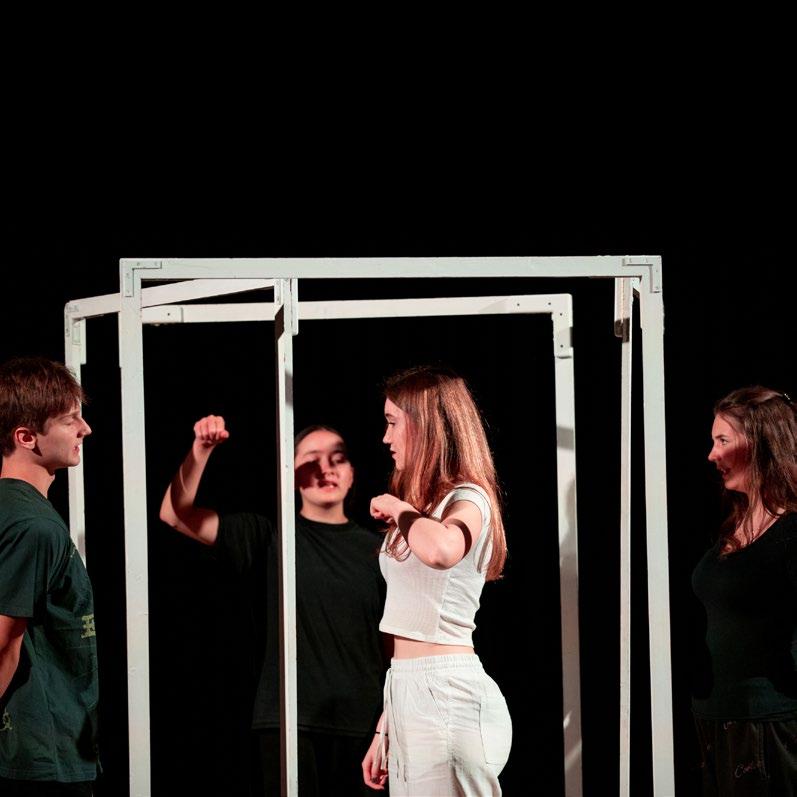
Studying drama opens career opportunities in acting, directing, playwriting, and stage management. It also develops valuable skills such as public speaking, teamwork, creative thinking, emotional intelligence and adaptability. These skills are transferable to fields like education, therapy and the arts.
Specification title & Examination Board: A level Economics A (2015) – Edexcel
GCSE grades/Course entry requirements
There is no need to have studied this subject before. A GCSE grade of at least a 6 in Mathematics is required for entry to this course.
Course content
The course has two equal halves: macroeconomics and microeconomics. In the Lower Sixth, macroeconomics is the study of how the UK economy works on a national scale. For example, it considers the impact of interest rates on the firms and consumers across the economy. In the Upper Sixth macroeconomics considers global economic issues such as international trade. Microeconomics is the study of economic impacts on individual consumers and individual firms. It is taught via graphs and requires students to be able to manipulate the graphs. Both halves of the course require students to be able to interpret data and to do calculations.
Course outline
Lower Sixth macroeconomics involves studying what the governments objectives are and how the government aims to achieve them using monetary, fiscal and supply side policy. Students learn about GDP statistics and alternatives to GDP as a measure of income, such as the Happiness Index or the Human Development Index. They also study topics such as inflation, economic growth, and unemployment. Lower Sixth Microeconomics aims to provide a model about how individual firms and individual consumers behave. It considers different
types of economy, the role of market forces, indirect taxes, subsidies, price elasticity of demand, income elasticity of demand and cross elasticity of demand. A significant part of Upper Sixth macroeconomics relates to economic development. Reasons for lack of development and policies to encourage development are considered. Students also study the financial sector, inequality between countries and within countries, exchange rates, competitiveness, the World Trade Organisation, comparative advantage, and international trade. Upper Sixth microeconomics revolves around the Theory of the Firm. Students study different types of business structure, such as perfect competition, oligopoly, and monopoly. This is represented through graphs, which means students need to understand the cost and revenue curves before they can progress to studying the Theory of the Firm.
• There are 3 two-hour exams at the end of the Upper Sixth.
• There is no coursework.
Economics is an extremely popular course at university, which makes it extremely difficult to secure a place at a Russell Group university. Mathematics A level is a prerequisite to studying economics at university. The career options with economics are very varied. They include accountancy, management consultancy, statistics, finance, and insurance. Economics graduates are the highest earners of all degrees five years after graduating.
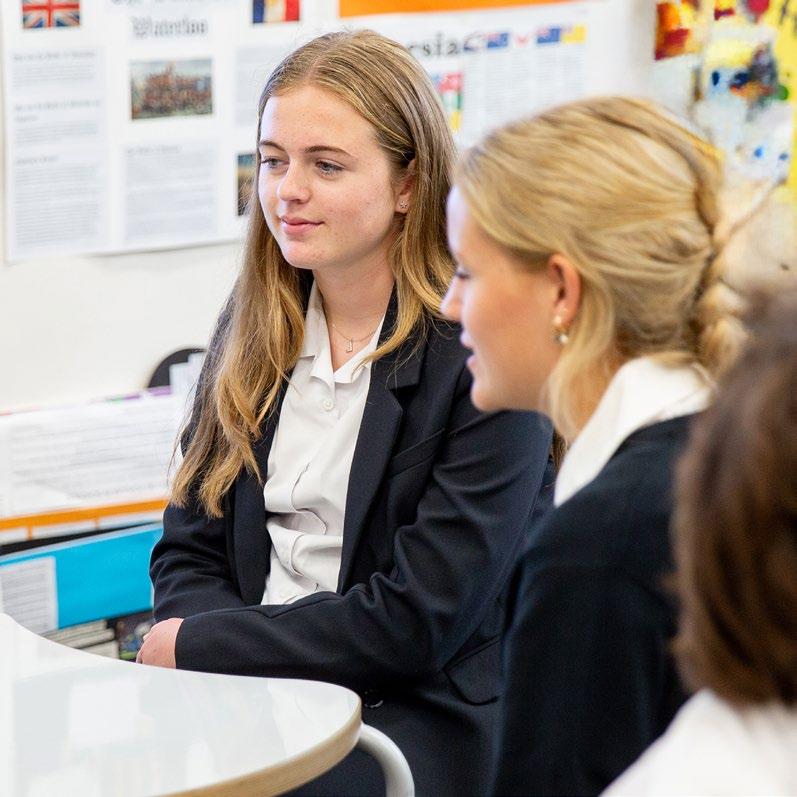
Specification title & Examination Board:
A level English Literature – Edexcel
Recommended GCSE grades/Course entry requirements
A minimum of at least a grade 6 in GCSE English Literature is required for entry to this course.
Course content
As scholars of literature, we understand that no text exists in isolation but is the product of the time in which it was produced. Edexcel’s course encourages students to explore the relationships that exist between texts and the contexts within which they are written, received and understood. Studying texts within a shared context enables students to investigate and connect them, drawing out patterns of similarity and difference using a variety of reading strategies and perspectives.
Literature allows students to engage with voices from across ages, cultures, geographies and historical landscapes but is also the study of the human psyche. Through the study of our texts (and indeed beyond) we develop insight into and understanding of the key events, trends and ideologies which have shaped both our past and present society.
Course outline
1. Drama: Tragedy
An in-depth study of William Shakespeare’s King Lear and Tennessee Williams’ A Streetcar Named Desire
Students will need to explore the use of literary and dramatic devices and the shaping of meanings in their chosen plays. Teaching and wider reading should address the significance and influence of contextual factors and engage with different interpretations of the chosen Shakespeare play. Students’ study of Shakespeare should be enhanced by engagement with critical writing.
An in-depth study of Bram Stoker’s Dracula and Oscar Wilde’s The Picture of Dorian Gray
Students should show knowledge and understanding of how genre features and conventions operate in prose fiction texts as well as explore the context in detail. Students will also be required to show knowledge and understanding of a range of ways to read texts, including reading for detail, and of how writers use and adapt language, form and structure in texts, responding critically and creatively.
3. Poetry: Post 2000 and Pre 1900
An in-depth study of the following:
• Poems of the Decade: An Anthology of the Forward Books of Poetry 2002–2011
• The Wife of Bath’s Prologue and Tale, editor James Winny (Cambridge, 1994)
Students will consider the concerns and choices of modern-day poets in a selection of contemporary poems. Students will apply their knowledge of poetic form, content and meaning, and develop their skills in comparing an unseen poem with an example of studied poetry. Students will also develop depth of knowledge about poetic style by studying a selection from the work of a single named poet, or a selection from within a literary period or movement. Literary study of the chosen
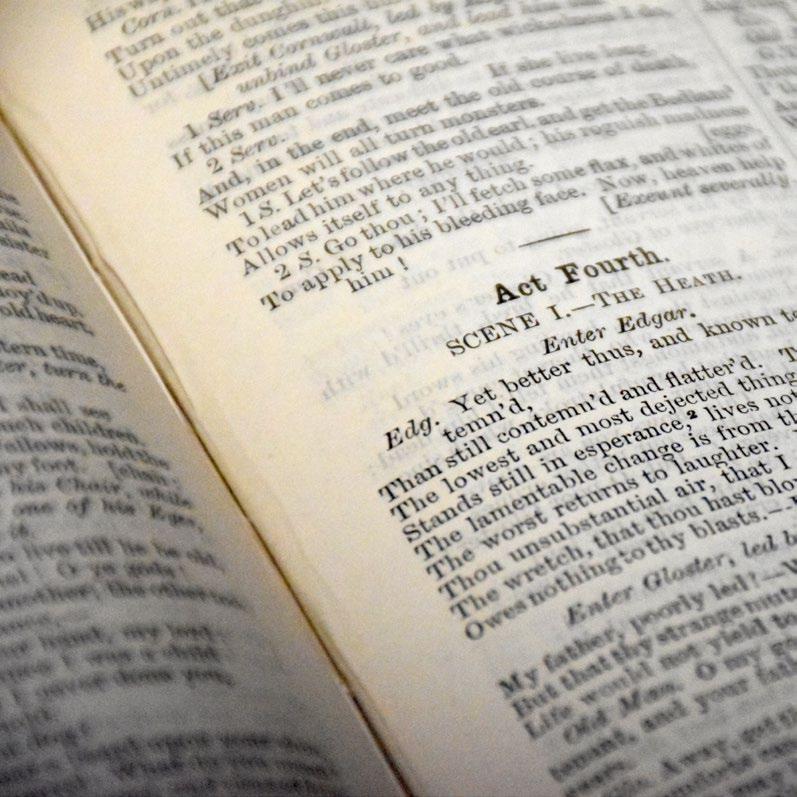
set poems should be enhanced by study of the contexts in which they were written and received.
4. Non-examination assessment: Coursework
This will be assessed via two texts. The selected texts may be linked by theme, movement, author or period. Literary study of both texts will be enhanced by study of the links and connections between them, different interpretations and the contexts in which they were written and received.
How English Literature will be examined
• Three written examinations at the end of the Upper Sixth.
• A piece of coursework.
& HE
It is widely recognised by universities that the skills developed through the study of English literature are among the most transferable, preparing students for a wide range of degrees. English graduates go on to develop the widest range of careers – among the most popular are publishing, broadcasting, marketing and PR, journalism, law, teaching and politics.
Specification title & Examination Board:
A level French – Edexcel
Recommended GCSE grades/Course entry requirements
A minimum of a grade 6 in French is required to study A level French.
Course content
Choosing A level French is a really good move if you want a fascinating subject that offers you a range of career possibilities and also brings a lot of enjoyment. Interesting and varied, it gives you the opportunity to really get to know the culture of the people who speak French around the globe – in Europe, Frenchspeaking areas of the Americas, Africa and Asia. The skills you gain from studying French at A level are incredibly important tools to acquire and the passion towards the French language is one we hope will remain with you throughout your life.
Course outline
1. Social issues & trends and political and artistic culture
• Les changements dans la société française
• La culture politique et artistique dans les pays francophones
• L’immigration et la société multiculturelle française
• L’Occupation et la Résistance
• Your own area of culture/society towards your Speaking exam. Past topics have included: Didier Drogba and his role in halting the Ivorian civil war, the work of “Médecins Sans Frontières” in the Democratic Republic of Congo, techniques in French pastry making and rugby in the Basque country.
2. Linguistic knowledge
You will continue your study of grammar to hone your linguistic skills of listening, speaking, reading, writing and translation to be able to interact effectively. You will make regular use of technology and the most up-to-date online materials.
3. Literature & Film
This area of the course encourages critical and intellectual thinking and a deep appreciation of the works studied. Key areas for study will be characterisation, form and technique of presentation (including effect of camera work in film) and social and cultural setting. This is a particularly enjoyable component and the sense of achievement it brings to have read your first play/novel or watched your first film in French is enormous. The department also arranges trips/ visits when possible.
How French will be examined
Three papers:
1. Listening, Reading & Translation into English –40%
2. Written response to text/film & Translation into French – 30%
3. Speaking – a topic card and a discussion on your IRP (Individual Research Project) – 30%
Careers & HE
Employers value the key skills developed by language learners: communication; team work; interpersonal, presentation and problem-solving skills. Indeed, graduates who want to gain a cutting edge in the employment market are advised to learn a foreign language. Languages are key to the exciting multinational world in which we live!

Specification title & Examination Board: A level Geography – AQA
Recommended GCSE grades/Course entry requirements
A minimum of at least a grade 6 in GCSE Geography is required for entry to this course.
Course content
A true geographer appreciates the interlinked nature of the world around them and the unique ability we have to analyse and interpret these relationships. Geography is a constantly evolving subject, shaped by the contemporary challenges in the world around us.
As a geography student you will study a range of physical geography topics such as coastal landscapes, ecosystems under stress and water and carbon cycles. In human geography you will study globalisation and global governance, contemporary urban environments and gather an understanding of how places are shaped and change over time.
Course outline
Paper 1: Physical Geography (40% of the A level)
• Water and carbon cycles
• Coastal systems and landscapes
• Ecosystems under stress
Component 2: Human Geography (40% of the A level)
• Global systems and global governance
• Changing places
• Contemporary urban environments
Component 3: Geography fieldwork investigation (20% of the A level)
All students will undertake four days of fieldwork which is mostly covered in a week of London-based trips. This is the chance to practise for universitystyle data collection which is less directed and more unique to your own interests and strengths. Students will design an enquiry question of their choice, investigating a geographical problem in London, they will then collect primary data and write up their fieldwork findings in a written report approximately 4,000 words long.
How Geography will be examined
• Two exams sat at the end of the Upper Sixth year.
• One piece of coursework based on fieldwork students conduct in the Lower Sixth and written up in the Michaelmas term of the Upper Sixth.
Careers & HE
Geography is a multi-disciplinary subject that equips students with multiple transferable skills such as research methodologies, primary and secondary data collection, ArcGIS mapping, ICT skills, statistical analysis and the ability to analyse various types of qualitative and quantitative data. Geography will also develop your intellectual skills, such as critically evaluating theories judging evidence and essay writing skills. Approximately 1/3 of our geographers go on to study geography or a closely related discipline at top universities, including Environmental Science, Sustainable Global Development, Geographical Information Systems and BA and BSc Geography.
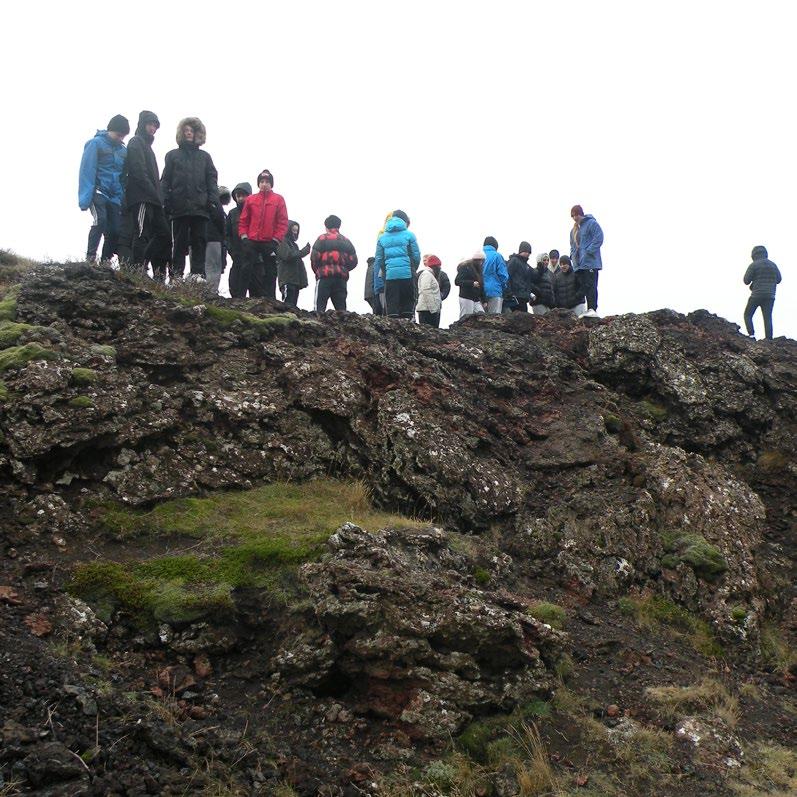
Specification title & Examination Board:
A level German – Edexcel
Recommended GCSE grades/Course entry requirements
A minimum of at least a grade 6 in GCSE German is required for entry to this course.
Course content
Choosing A level German is a really good move if you want a fascinating subject that offers you a range of career possibilities and also brings a lot of enjoyment. Interesting and varied, it gives you the opportunity to really get to know the culture of the people who speak German in communities around the globe, especially in Europe. The skills you gain from studying German at A level are incredibly important tools to acquire and the passion towards the German language is one we hope will remain with you throughout your life.
Course outline
1. Social issues & trends and political and artistic culture
• Gesellschaftliche Entwicklung in Deutschland
• Politische und künstlerische Kultur im deutschen Sprachraum
• Immigration und die deutsche multikulturelle Gesellschaft
• Die Wiedervereinigung Deutschlands
• Your own area of culture/society towards your Speaking exam. Past topics have included: sustainable fashion in Germany, The Red Bull era of FC Leipzig, The gaming industry in Germanspeaking countries, Grimm’s fairy tales.
2. Linguistic knowledge
You will continue your study of grammar to hone your linguistic skills of listening, speaking, reading, writing and translation to be able to interact effectively. You will make regular use of technology and the most upto-date online materials
Literature & Film
This area of the course encourages critical and intellectual thinking and a deep appreciation of the works studied. Key areas for study will be characterisation, form and technique of presentation (including effect of camera work in film) and social and cultural setting. This is a particularly enjoyable component and the sense of achievement it brings to have read your first play/novel or watched your first film in German is enormous. The Department also arranges trips/visits where possible.
How German will be examined
Three papers:
1. Listening, Reading & Translation into English –40%
2. Written response to text/film & Translation into German – 30%
3. Speaking – a topic card and a discussion on your IRP (Individual Research Project) – 30%
Careers & HE
Employers value the key skills developed by language learners: communication; team work; interpersonal, presentation and problem-solving skills. Indeed, graduates who want to gain a cutting edge in the employment market are advised to learn a foreign language. Languages are key to the exciting multinational world in which we live!

Specification title & Examination Board:
A level Medieval & Early Modern History – OCR
Recommended GCSE grades/Course entry requirements
A grade 6 or above in GCSE History is required for this course.
Course content
This course is perfect for you if:
• You’re fascinated by stories of power, conflict, and social change.
• You enjoy analysing historical evidence and forming your own conclusions.
• You want to develop critical thinking and communication skills.
Develop valuable skills:
Source analysis: Become a history detective, learning to critically evaluate primary and secondary sources.
Evaluative and analytical thinking: Form your own interpretations of historical events and assess the motives of key figures.
Debate and discussion: Build your confidence in presenting arguments and engaging in lively historical discussions.
Coursework:
The course includes a captivating coursework piece that allows you to delve deeper into a specific topic that sparks your interest.
Course outline
Dive deep into a fascinating period of change and upheaval!
Medieval & Early Modern History explores a dynamic era from the 11th to the 17th centuries. You’ll delve into:
• The Crusades: Unpack the motives, battles, and lasting impact of these religious conflicts.
• Anglo-Saxon England and the Norman Conquest: Explore the Viking invasions, the rise of Alfred the Great, and the dramatic events of 1066.
• Rebellion and Disorder under the Tudors: Analyse challenges to Tudor rule, from religious upheaval to political intrigue.
How Medieval & Early Modern History is assessed
The course is assessed through 3 separate examinations in the June series and a coursework piece, submitted before Christmas in your Upper Sixth year.
Careers & HE
Studying history equips you with a robust skill set that is highly valued by universities and employers alike. You’ll develop exceptional research and analytical abilities, allowing you to tackle complex information and form well-reasoned arguments. The emphasis on critical thinking and communication skills will prepare you for success in a wide range of university courses, from History and Politics to Law and International Relations. Furthermore, your understanding of historical trends and cause-and-effect relationships will prove invaluable in various careers, including business, journalism, and education.
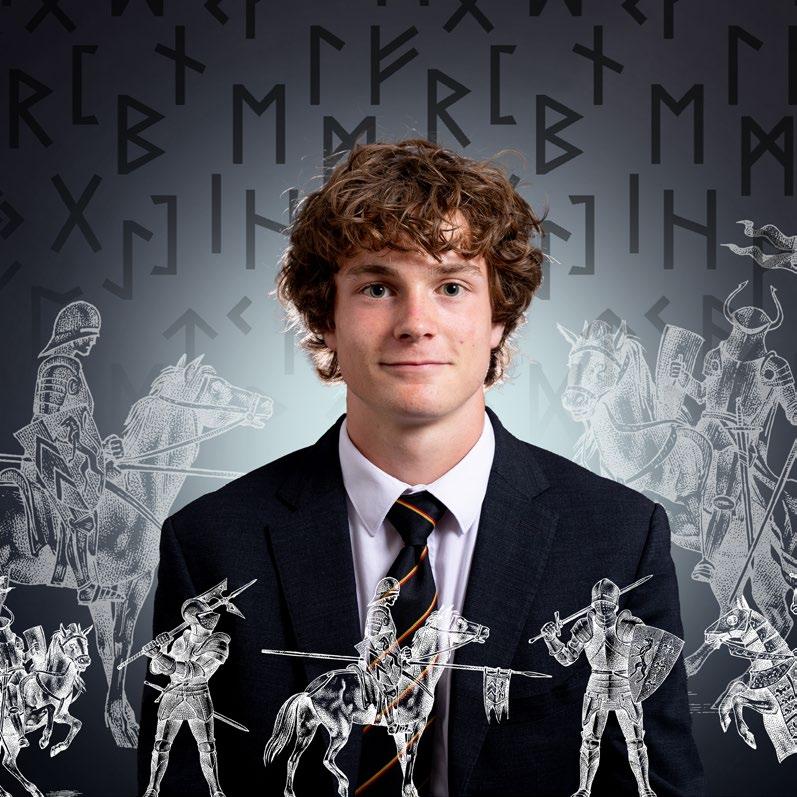
Specification title & Examination Board:
A level Modern History – OCR
Recommended GCSE grades/Course entry requirements
A grade 6 or above in GCSE History is required for this course.
Course content
This course is perfect for you if:
• You have a curiosity about recent world history and its impact on the present.
• You enjoy debating historical interpretations and forming your own informed opinions.
• You want to develop critical thinking and communication skills relevant to university study and beyond.
Develop valuable skills:
Source analysis: Hone your ability to identify bias and evaluate historical evidence.
Evaluative and analytical thinking: Develop your skills in analysing historical events and forming wellsupported arguments.
Debate and discussion: Sharpen your communication skills by actively participating in class discussions and debates.
Coursework:
The course features a unique coursework opportunity, allowing you to explore a specific aspect of modern history that piques your interest.
Course outline
Explore the world-defining events that shaped the 20th century!
Modern History takes you on a thrilling journey through the past century, examining significant events and transformations. You’ll explore:
• The Cold War in Asia: Analyse the power struggles, ideological clashes, and proxy wars that defined this period.
• Pitt to Peel: Investigate the political landscape of Britain from the Industrial Revolution to the Reform Act of 1832.
• Russia and its Rulers: Examine the Tsars, the rise of Communism, and the Soviet Union’s impact on the world stage.
How Modern History will be examined
The course is assessed through 3 separate examinations in the June series and a coursework piece, submitted before Christmas in your Upper Sixth year.
Careers & HE
History is a springboard to a variety of university programs and future careers. Through in-depth research and analysis of historical events, you’ll hone your critical thinking and problem-solving skills. The ability to evaluate evidence and construct persuasive arguments is highly sought after in universities and workplaces. Moreover, studying history fosters a global perspective and an understanding of the complexities of the modern world, making you a well-rounded and adaptable candidate for a multitude of careers, including law, international relations, and journalism.

Specification title & Examination Board:
A level Latin – OCR
Recommended GCSE grades/Course entry requirements
A minimum of a grade 6 in GCSE Latin.
Course content
Latin, for two thousand years the language of many of the greatest thinkers and writers of the western world, remains a living and intellectually stimulating language which is the key to understanding many central aspects of western thought and culture. If we are to understand and use to best effect our own language, we must also understand the influences which have shaped and developed English. The study of Latin also complements other subjects, such as Classical Civilisation, English, History, and the romance languages (French, Spanish, Italian and Portuguese). The logical approach also sees Latin combining well with Maths and the sciences.
Through the study of the language and literature of the Romans, you can equip yourself with cultural and intellectual skills, fire your imagination and deepen and develop experience by considering a wide range of aesthetic, ethical, linguistic, political, religious and social questions.
Course outline
The OCR A level Latin course is divided into four main components:
1. Unseen translation
Students build their knowledge of the Latin
language to become familiar with the vocabulary and linguistic structures used by Livy and Ovid (both hexameters and elegiacs).
2. Prose composition or comprehension
Students develop and demonstrate their detailed understanding of Latin vocabulary and linguistic structures through either:
• Translating unseen material from English into Latin; or
• Demonstrating their understanding of an unseen prose text through comprehension, translation and questions on syntax and accidence.
3: Prose literature
You will study Cicero’s Pro Caelio, an elaborate trial, blending clever legal arguments with humour and personal attacks.
4: Verse literature
You will prepare selections from Virgil’s Aeneid II, looking at the events leading to the Troy’s tragic downfall and destruction.
How Latin will be examined
• Four written examinations at the end of the Upper Sixth.
• There is no coursework.
Careers & HE
The transferable skills gained from the study of Latin makes it an excellent choice for a wide range of degree and career choices. A small selection of typical pathways including law, politics, accountancy, marketing and advertising, computer programming and banking.

‘… we know that those who have studied the ancient languages are never, in fact, short of job-offers. A top asset-manager recently told me that his firm always employed classicists: they sold more. If Richard Dawkins is right, that is because ‘what Classics has always done is just teach people how to think.’ (Peter Jones, Taking The Long View)
Specification title & Examination Board:
A level Mathematics – Edexcel
Recommended GCSE grades/Course entry requirements
The key requirements are enthusiasm for problem solving, perseverance and good ability in algebra.
A minimum of at least a grade 7 in GCSE Mathematics is required for entry to this course although grade 8 and above is strongly recommended.
Course content
Mathematics combines well with many other A level subjects, especially the sciences and Economics.
While studying A level Mathematics you will learn how to:
1. use mathematical skills and knowledge to solve problems
2. solve quite complicated problems by using mathematical arguments and logic
3. simplify real life situations so that you can use mathematics to show what is happening and what might happen in different circumstances
4. use mathematics to solve problems that are given to you in a real-life context
5. use calculator technology and other resources (such as formulae booklets or statistical tables) effectively and appropriately; understand when not to use such technology, and its limitations
Course outline
Pure Content overview
• Topic 1 – Proof
• Topic 2 – Algebra and functions
• Topic 3 – Coordinate geometry in the (x, y) plane
• Topic 4 – Sequences and series
• Topic 5 – Trigonometry
• Topic 6 – Exponentials and logarithms
• Topic 7 – Differentiation
• Topic 8 – Integration
• Topic 9 – Numerical methods
• Topic 10 – Vectors
Applied Content Overview
Section A: Statistics
• Topic 1 – Statistical sampling
• Topic 2 – Data presentation and interpretation
• Topic 3 – Probability
• Topic 4 – Statistical distributions
• Topic 5 – Statistical hypothesis testing
Section B: Mechanics
• Topic 6 – Quantities and units in mechanics
• Topic 7 – Kinematics
• Topic 8 – Forces and Newton’s laws
• Topic 9 – Moments
How Maths will be examined
The Pearson Edexcel Level 3 Advanced GCE in Mathematics consists of three externally-examined papers. Students must complete all assessment in May/June in any single year.
Paper 1: Pure Mathematics 1 (9MA0/01)
Paper 2: Pure Mathematics 2 (9MA0/02)
Paper 3: Statistics and Mechanics (9MA0/03)
Each paper is: 2-hour written examination 33.33% of the qualification 100 marks

Assessment overview
• Paper 1 and Paper 2 may contain questions on any topics from the Pure Mathematics content. Calculators can be used in the assessment.
• Paper 3 will contain questions on topics from the Statistics content in Section A and Mechanics content in Section B. Calculators can be used in the assessment.
Careers & HE
Maths is a fundamental skill that underpins a variety of specialist skills. Certain degree subjects, such as Engineering, Physics, Statistics, and Economics, require A level mathematics. Taking an A level in Maths is also often the first step into a rewarding career within fields such as science, computing, business & finance, and even within the healthcare field.
Specification title & Examination Board:
A level Further Mathematics – Edexcel
Recommended GCSE grades/Course entry requirements
The key requirements are enthusiasm for problem solving, perseverance and good ability in algebra.
A minimum of at least a grade 8 in GCSE Mathematics is required for entry to this course although grade 9 is strongly recommended. Please note this option can only be taken alongside A level Mathematics. It cannot be taken as a single option.
Course content
Further Mathematics combines well with many other A level subjects, especially the sciences and Economics.
The aims and objectives of this qualification are to enable students to:
• understand mathematics and mathematical processes in ways that promote confidence, foster enjoyment and provide a strong foundation for progress to further study
• extend their range of mathematical skills and techniques
• understand coherence and progression in mathematics and how different areas of mathematics are connected
• apply mathematics in other fields of study and be aware of the relevance of mathematics to the world of work and to situations in society in general
• use their mathematical knowledge to make logical and reasoned decisions in solving problems both within pure mathematics and in a variety of contexts, and communicate the mathematical rationale for these decisions clearly
• reason logically and recognise incorrect reasoning
• generalise mathematically
• construct mathematical proofs
Course outline
Core Pure Content overview
Proof, Complex numbers, Matrices, Further algebra and functions, Further calculus, Further vectors, Polar coordinates, Hyperbolic functions, Differential equations
Applied Content overview
Further Statistics 1 – Discrete probability distributions, Geometric and negative binomial distributions, Hypothesis testing, Central limit theorem, Chi Squared Test, Probability generating functions, Quality of tests
Further Mechanics 1 – Momentum and Impulse, Elastic strings and springs and elastic energy, Elastic collisions in one and two dimensions
How Further Maths will be examined
The Pearson Edexcel Level 3 Advanced GCE in Further Mathematics consists of four externallyexamined papers. Students must complete all assessments in May/June in any single year.
Paper 1: Core Pure Mathematics 1 (9FM0/01)
Paper 2: Core Pure Mathematics 2 (9FM0/02)
Paper 3: Further Statistics 1 (9FMA0/3B)
Paper 4: Further Mechanics (9FM0/3C)
Each paper is: a 1 hour and 30 minutes written examination 25% of the qualification 75 marks

Assessment overview
• Paper 1 and Paper 2 may contain questions on any topics from Core Pure Mathematics
• Paper 3 will contain questions on topics from the Further Statistics 1 content
• Paper 4 will contain questions on topics from the Further Mechanics 1 content
• Students must answer all questions on the exam paper.
• Calculators can be used in all of the assessments.
If you are planning to take a degree such as Engineering, Sciences, Computing, Finance/Economics, etc., or perhaps Mathematics itself, you will benefit enormously from taking Further Mathematics.
It is a challenging qualification, which both extends and deepens your knowledge and understanding beyond the standard A level Mathematics.
Further Mathematics qualifications are highly regarded and are warmly welcomed by many universities. Students who take Further Mathematics are really demonstrating a strong commitment to their studies, as well as learning mathematics that is very useful for any mathematically rich degree.
Specification title & Examination Board:
A level Music – Eduqas
Course entry requirements
Grade 6 or higher for GCSE Music (students who have not studied GCSE Music may also be considered if they have passed Grade 5 Music Theory and have a broad practical experience of performing and composing music).
We also recommend:
• Grade 6 or higher on at least one instrument
• A keen interest in performing, composing and analysing music in a range of different styles
Course content
You will develop knowledge and understanding of music through three areas of study:
• Performance
• Composition
• Musical Understanding
– The Western Classical Tradition
– Rock and Pop, or Musical Theatre, or Jazz
– Into the Twentieth Century
Course outline
Performance
Externally assessed by a visiting examiner
A performance consisting of a minimum of three pieces. At least one of these pieces must be as a soloist. The other pieces may be either as a soloist or as part of an ensemble or a combination of both. One piece must reflect the musical characteristics of one area of study. At least one other piece must reflect the musical characteristics of one other, different area of study.
Composition
Two compositions, one of which must reflect the musical techniques and conventions associated with the Western Classical Tradition and be in response to a brief set by WJEC. Learners will have a choice of four set briefs, released during the first week of September in the academic year in which the assessment is to be taken. The second composition is a free composition.
Musical Understanding
Three areas of study:
Area of study A: The Western Classical Tradition (The Development of the Symphony 1750–1900) which includes two set works. Choose one set work for detailed analysis and the other for general study.
• Symphony No. 104 in D major, ‘London’: Haydn
• Symphony No. 4 in A major, ‘Italian’: Mendelssohn
A choice of one area of study from:
Area of study B: Rock and Pop
Area of study C: Musical Theatre
Area of study D: Jazz
A choice of one area of study from:
Area of study E: Into the Twentieth Century including two set works:
• Trio for Oboe, Bassoon and Piano, Movement II: Poulenc
• Three Nocturnes, Number 1, Nuages: Debussy
Area of study F: Into the Twenty-first Century including two set works:
• Asyla, Movement 3, Ecstasio: Thomas Adès
• String Quartet No. 2 (Opus California) Movements 1 (Boardwalk) and 4 (Natural Bridges): Sally Beamish
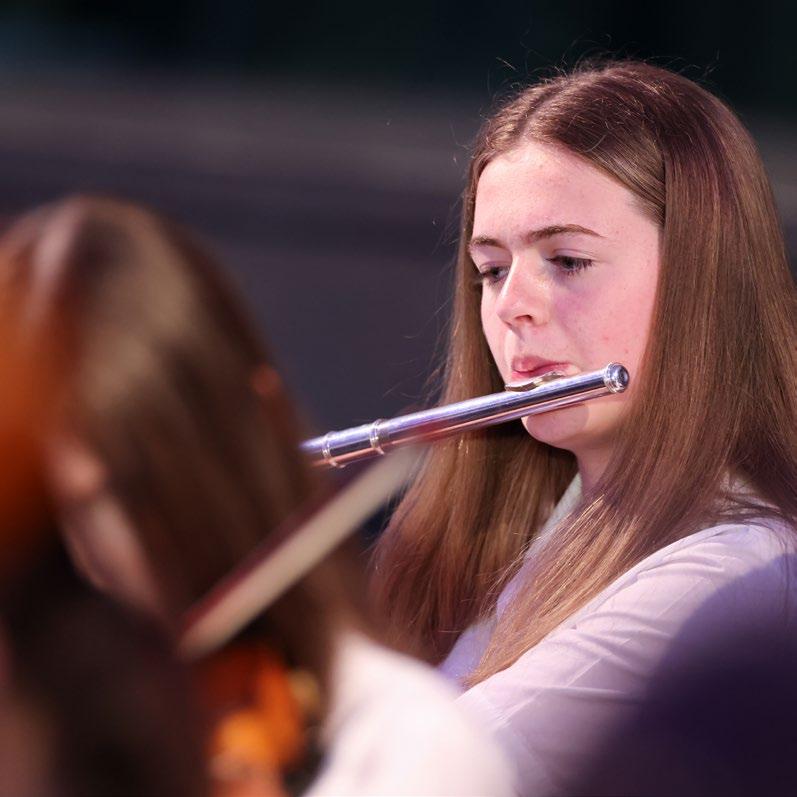
How Music will be examined
Performance
• One performance between February–April of Upper 6th for a visiting examiner lasting 10–12 minutes (35%)
Composition
• Two compositions; one which is ‘free’ and one completed to a set brief from a choice of four (25%)
Musical Understanding
• One written examination at the end of the course (40%)
Careers & HE
A level Music can open diverse pathways, be it in a more academic or more technology-based direction. Some skills can lead to music-related roles, including: singing teacher, musician, performer, music teacher and music therapist. Other skills can lead to work in the publishing, media and performing arts sectors, as well as within the fields of education, health and information services.
Specification title & Examination Board:
A level Physical Education (7582) – AQA
Recommended GCSE grades/Course entry requirements
A Grade 6 or above in GCSE PE or Grade 6 in a science (preferably Biology and Physics) is required for entry to this course.
Course content
PAPER 1
Section A: Applied anatomy and physiology (cardiovascular; respiratory; neuro-muscular; musculo-skeletal; energy systems)
Section B: Skill acquisition (stages of learning; leadership; guidance; information processing; skill development)
Section C: Sport and society (Pre 1870, post 1870 and Post second world war sports development, sociological theories and equal opportunities)
PAPER 2
Section A: Exercise physiology and biomechanics (nutrition and injury, biomechanical movement; projectile motion and fluid dynamics)
Section B: Sport psychology (personality; attitudes; arousal; anxiety; aggression; motivation and goal setting; stress management)
Section C: Sport and society and technology in sport (concepts of physical activity; elite sport development; funding; media; technology; sport and the law; ethics including drugs and violence)
Course outline
The A level specification in physical education is aimed to equip students with both a depth and breadth of knowledge, understanding and skills relating to scientific, socio-cultural and practical aspects of physical education.
It develops theoretical knowledge and understanding of the factors that underpin physical activity and sport and uses this knowledge to improve performance. It builds understanding of how physiological and psychological states affect performance and the key socio-cultural factors that influence people’s involvement in physical activity and sport.
We study the role of modern technology in physical activity and sport to refine ability to perform effectively by developing skills and techniques and selecting and using tactics, strategies and/or compositional ideas. Students develop their ability to analyse and evaluate to improve performance and understand the contribution which physical activity makes to health and fitness.
A level PE develops students into effective and independent learners and as critical and reflective thinkers with curious and enquiring minds.
How Physical Education will be examined
• Paper 1 and Paper 2 are written exams: 2 hours each paper
• NEA coursework
• Practical performance or coach in one sport –15% of A level
• Analysis and Evaluation coursework project –15% of A level

The course opens opportunities to study sports science, exercise and health, physiotherapy, sports coaching, and sports therapy at university. All the Russell Group universities accept A level PE as an academic subject. The subject also offers a breadth of study which could lead to an apprenticeship or direct entry into the sport and leisure industry.
Specification title & Examination Board:
A level Physics 7407 – AQA
Recommended GCSE Grades/Course Entry
Requirements:
At least a Grade 7 is required in GCSE Mathematics and Physics for entry to this course.
Course content
A level Physics provides a comprehensive understanding of the fundamental principles that govern the natural world. The course extends familiar topics from GCSE, such as forces, motion energy and electricity, as well as introducing brand new concepts, such as particle physics, the world of and quantum mechanics. The course concludes with an in-depth study of astrophysics, including some of the latest understanding of exoplanets and dark energy. It also draws on many of the topics covered in the rest of the course.
Course outline
Lower Sixth
• Particles and radiation – sub-atomic particles and quantum physics
• Waves & optics – refraction, polarisation, diffraction and interference
• Mechanics and materials – forces, motion, energy, momentum, stress and strain
• Electricity – resistivity, superconductors, internal resistance and circuits
• Further mechanics – circular motion and oscillations
Upper Sixth
• Thermal physics – specific heat capacity and kinetic theory of gases
• Fields – gravitational, electric and magnetic fields, capacitors and EM induction.
• Nuclear physics – radioactivity decay, applications, fission and fusion
• Astrophysics – telescopes, stars and the universe
Throughout the course, practical skills are honed through hands-on experiments. Students will design experiments, collect and analyse data, and draw conclusions, which are essential for understanding the theoretical concepts.
How Physics will be examined:
Three written papers at the end of Upper Sixth (graded A to E)
• Paper 1 – Lower Sixth material (structured questions and multiple-choice questions)
• Paper 2 – Upper Sixth material (structured questions and multiple-choice questions)
• Paper 3 – Astrophysics and experimental skills and data analysis.
A level practical endorsement (graded pass or fail)
There is no coursework component; however, there will be compulsory experiments throughout the course, during which experimental skills will be assessed.
Careers & HE
A level Physics is highly regarded by universities and employers. It provides a strong foundation for further study in fields such as physics, engineering, astronomy and computer science. The analytical, problem-solving and practical skills gained are valuable in a wide range of careers.
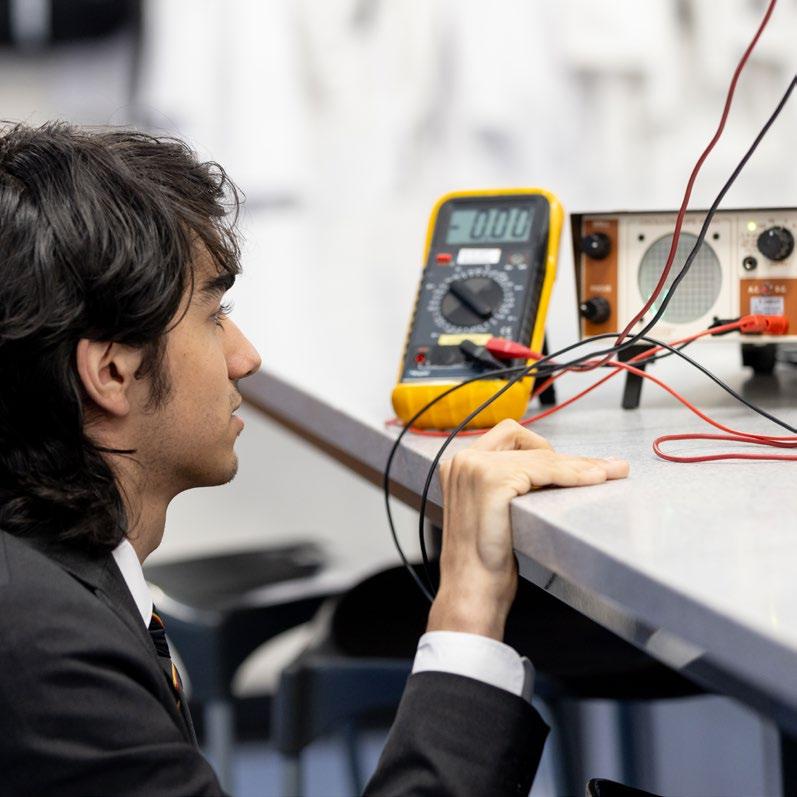
Specification title & Examination Board:
A level Politics – Pearson Edexcel
Recommended GCSE grades/Course entry requirements
A grade 6 at GCSE in any subject with a substantial written component.
Course content
Studying A level Politics is to study arguably the most important influence upon our lives at a local, national and international level. It is often a matter of life and death and it is little wonder that Aristotle called it the ‘master science’. This course illuminates Britain’s current political landscape, international relations and the ideologies sculpting modern societies worldwide. You’ll acquire critical thinking skills and emerge a confident, globally conscious citizen, questioning norms and reimagining how society could be.
Course outline
1. Paper 1 (UK Politics and core political ideas)
Students will investigate in detail how people and politics interact.
You will study UK Politics:
• Democracy and participation
• Political parties
• Electoral systems
• Voting behaviour and the media and core political ideas:
• Liberalism
• Conservatism
• Socialism
2. Paper 2 (UK Government and non-core political ideas)
This component is fundamental to understanding the nature of UK government, since it enables students to understand where, how and by whom political decisions are made.
You will study UK Government:
• The constitution
• Parliament
• Prime Minister and the executive
• Relations between the branches – with particular focus on the Supreme Court and human rights law and one non-core political idea from:
• Anarchism
• Ecologism
• Feminism
• Multiculturalism
• Nationalism
3. Paper 3 (Global politics)
We live in a complex world with significant challenges, including global terrorism, poverty, economic instability, weapons proliferation, failing states and environmental degradation. The Global Politics course is essentially an introduction to international relations.
You will study:
• The principal theories underpinning international relations: realism and liberalism
• Global governance, including in the areas of conflict, poverty, human rights and the environment. You will assess institutions such as the United Nations and NATO.
• Power distribution and systems of government including democratic, authoritarian, failed and rogue states.
• Regionalism including a consideration of organisations such as the European Union and African Union.
• Three written examinations at the end of the Upper Sixth.
• There is no coursework.
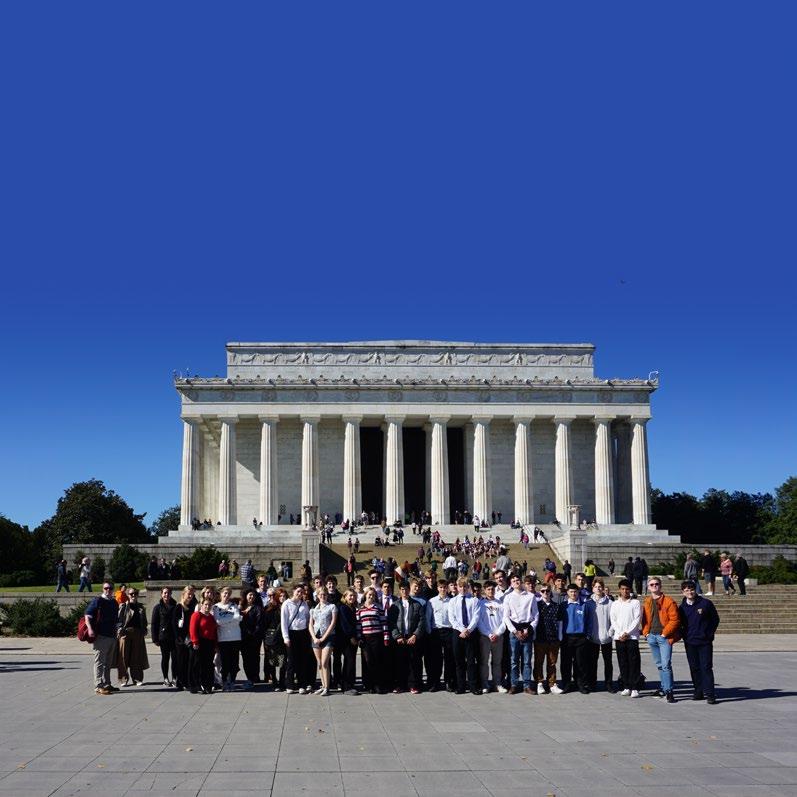
You will acquire highly-prized transferable skills enabling you to analyse and evaluate information, form arguments and convey them confidently in writing and verbally whilst learning a subject that can set you on a path to a vast range of some of the most exciting careers in the fields of diplomacy, the media or the law to name just a few.
Specification title & Examination Board:
A level Psychology – OCR
Recommended GCSE grades/Course entry requirements
Level 6 in English GCSE (Language or Literature). No previous study of Psychology is required.
Course content
Psychology is often seen as a ‘bridge’ between the sciences and humanities. This far-reaching and interesting course offers insight into the normal and abnormal aspects of the human mind. As a science, it is based on research and empirical evidence, and requires skills in analysing, reviewing and critiquing theories and research papers, as well as carrying out original research.
The emphasis on research methods prepares you for pursuing research at university and beyond. If you are hoping to study psychology at university it is useful (but not essential) also to study Biology, English or Maths at A level.
Course outline
1. Research Methods
This includes planning, conducting, analysing and reporting psychological research across a range of experimental and non-experimental methodologies and techniques. Students are expected to carry out their own small-scale practical activities and reflect on their experiences.
2. Psychological themes through core studies
Students learn about the key areas and perspectives in psychology, methodological issues relating to the core studies and discuss debates in psychology. This is done in the context of organised key themes (for example: external influences on children’s behaviour), with each key theme being explored by a classic and a contemporary core study.
3. Applied Psychology
This paper covers issues in mental health, criminal psychology and environmental psychology. This paper encourages students to apply their psychological knowledge to assess debates and practical applications of key research.
How Psychology will be examined
Three written examinations at the end of the Upper Sixth:
• Paper 1: Research Methods (2 hours)
• Paper 2: Psychological Themes Through Core Studies (2 hours)
• Paper 3: Applied Psychology (2 hours)
There is no coursework.
Careers & HE
The knowledge gained from taking psychology as an A level is highly favoured by employers across multiple industries, as are the transferable skills such as critical thinking, analysis and decision making. Psychology lends itself to a wide variety of jobs and many people who study psychology at a higher level go into a medical, therapy or education-related job sector.
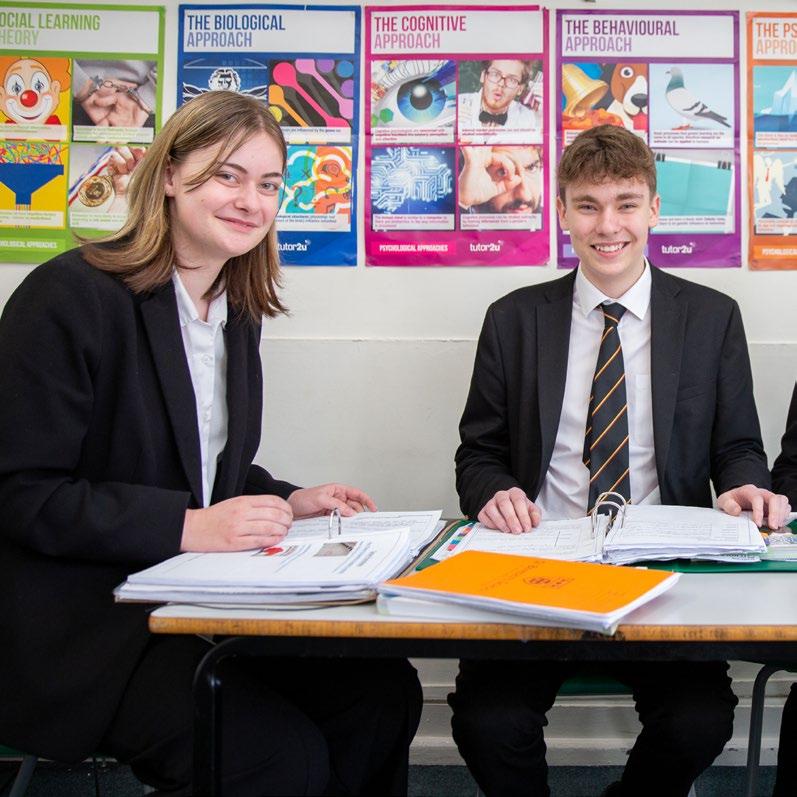
(PHILOSOPHY, THEOLOGY AND ETHICS)
Specification title & Examination Board:
A level Religious Studies – OCR
Recommended GCSE grades/Course entry requirements
No previous study of RE is required, however it is advantageous. At least a Grade 6 in GCSE RE is required if this has been studied. If RE has not been studied, at least a Grade 6 in any subject with a substantial written component is required.
Course content
Religious Studies enables you to address some of the fundamental issues affecting humanity from a philosophical, ethical, and theological perspective. This A level equips with the tools of critical inquiry needed to approach questions related to how we come to know things (epistemology), what can be known or said about God (theology) and how human beings should live their lives (ethics).The subject is also an excellent preparation for dealing with matters of faith and morals in a world that is becoming increasingly secular.
Religious Studies does not always lead to a single conclusive answer to the questions it raises. However, as a discipline it does develop valuable thinking skills, equipping people with a greater ability to make judgements, to be more precise in their thoughts and the language they use, to be less willing to accept views of others without challenging them, and to develop their own ideas, which will be more robust and capable of being defended.
Course outline
The course is divided into three sections. Some key topics in each section include:
Philosophy of Religion
• Ancient philosophical influences
• Arguments about the existence or nonexistence of God
• The challenge for religious belief of the problem of evil
• Ideas about the nature of God
Religion and Ethics
• The application of ethical theory to two contemporary issues
• Debates surrounding the role of conscience
• Metaethics
• Sexual ethics
Developments in Christian Thought
• Eschatology
• Religious pluralism and society
• Gender and theology
• Liberation theology and Marx
How Religious Studies will be examined
• Three written examinations at the end of the Upper Sixth.
• There is no coursework.
Careers & HE
Studying A level RE is an excellent preparation for career routes where careful critical analysis, appraisal of ethical issues, and formation of logical arguments are key. As such, this is an ideal A level for students who wish to progress to Law, PPE, or careers in policy making.

Specification title & Examination Board:
A level Sociology – AQA
Recommended GCSE grades / Course entry requirements
Level 6 in English GCSE (Language or Literature). No previous study of Sociology is required.
Course content
Sociology is the study of society and people, and their behaviour; it attempts to understand how society works. The course explores theories (functionalism, Marxism, feminism, interactionism and postmodernism) created to explain patterns in society such as crime and deviance, relationships in families and households and educational achievement. As an evidence-based subject, the course also studies the methods used to collect data to support sociologists’ theories; these will be useful for you if pursuing research at university. Studying sociology will enable you to discuss social issues in an informed and systematic way, as well as making sense of your own and other people’s experiences.
Course outline
Education
This involves exploring why some pupils do better than others. Sociologists have studied processes in schools, as well as factors in society, to try and explain why middle-class pupils perform better than working-class, why girls do better than boys and why there are ethnic patterns of achievement. The role of education in society is explored from different theoretical perspectives such as Marxism, functionalism and neo-liberalism. The experiences of pupils in schools, such as sexism and racism, are also studied, as well as policies that affect education.
Crime and Deviance
This is the study of rules and rule breaking. The major theories are used to explore why some people are more likely to be rule-breakers – or are more likely to be seen as rule-breakers – and who makes and enforces rules. We study a range of issues in relation to crime and deviance such as class, gender and ethnicity, the media, globalisation, the environment, control and victimology.
Families and Households
We study the relationship of the family to society, changing patterns of families and households, gender roles and power in relationships, and theories on the nature and status of childhood.
Beliefs in Society
The role of religion and ideology is explored: how they can maintain the status quo as well as being a force for change. We study how beliefs are changing from traditional religion to more personal spirituality, and the rise of religious and secular fundamentalism.
Research Methods
We study quantitative and qualitative methods of research and research design. We explore the relationship between positivism, interpretivism and sociological methods.
How Sociology will be examined
Three written examinations at the end of Upper Sixth.
• Paper 1: Education with Theory and Methods (2 hours)
• Paper 2: Topics in Sociology: Families & Households, Beliefs in Society (2 hours)
• Paper 3: Crime and Deviance with Theory and Methods (2 hours)

A level Sociology is an excellent basis for a wide range of social science and humanities courses at university including law, criminology, psychology, anthropology and human geography; one of our recent sociology students is at Cambridge reading Anglo-Saxon, Norse and Celtic studies! Many of our sociology students
choose to study sociology at university, and have embarked on careers in law, marketing, media and politics. Sociology develops intellectual skills such as forming arguments, critical analysis, evaluating theories and research methods; these are key transferable skills which are invaluable for university.
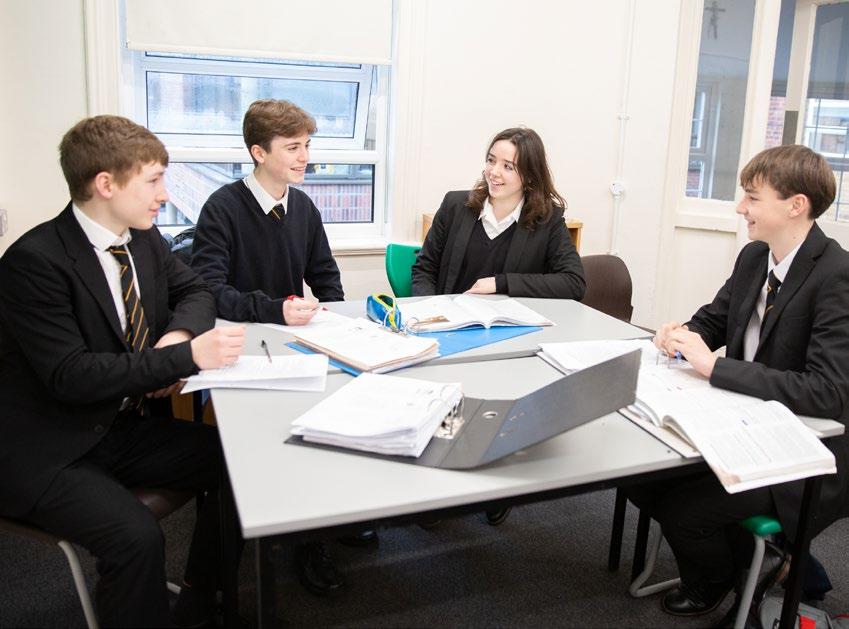
Specification title & Examination Board:
A level Spanish – Edexcel
Recommended GCSE grades/Course entry requirements
A minimum of a grade 6 in Spanish is necessary for entry to this course.
Course content
Choosing A level Spanish is a really good move if you want a fascinating subject that offers you a range of career possibilities and also brings a lot of enjoyment. Interesting and varied, it gives you the opportunity to really get to know the culture of the people who speak Spanish around the globe –especially in Europe and Latin America. The skills you gain from studying Spanish at A level are incredibly important tools to acquire and the passion towards the Spanish language is one we hope will remain with you throughout your life.
Course outline
1. Social issues & trends and political & artistic culture
• La evolución de la sociedad española
• La cultura política y artística en el mundo hispanohablante
• La inmigración y la sociedad multicultural Española
• La dictadura franquista y la transición a la democracia
• Your own area of culture/society towards your Speaking exam. Past topics have included: The life and works of Pablo Picasso, the impact of “Don Quijote” on the world of Literature, El Chapo & the Sinaloan Drugs Cartels in Mexico, the emerging popularity of rugby in Spain
2. Linguistic knowledge
You will continue your study of grammar to hone your linguistic skills of listening, speaking, reading, writing and translation to be able to interact effectively. You will make regular use of technology and the most up-to-date online materials
3. Literature & Film
This area of the course encourages critical and intellectual thinking and a deep appreciation of the works studied. Key areas for study will be characterisation, form and technique of presentation (including effect of camera work in film) and social and cultural setting. This is a particularly enjoyable component and the sense of achievement it brings to have read your first play/novel or watched your first film in Spanish is enormous. The Department also arranges trips/visits where possible.
How Spanish will be examined
Three papers:
1. Listening, Reading & Translation into English –40%
2. Written response to text/film & Translation into Spanish – 30%
3. Speaking – a topic card and a discussion on your IRP (Individual Research Project) – 30%
Careers & HE
Employers value the key skills developed by language learners: communication; team work; interpersonal, presentation and problem-solving skills. Indeed, graduates who want to gain a cutting edge in the employment market are advised to learn a foreign language. Languages are key to the exciting multinational world in which we live!

Specification title & Examination Board:
Pearson BTEC Level 3 National Diploma in Sport and Exercise Science (equivalent to 2 A levels –720 guided learning hours).
Students would normally take the BTEC with one other A level.
Recommended GCSE grades/Course entry requirements
A minimum of a grade 6 in GCSE PE is necessary for entry to this course. We will also require you to attend an interview to assess your suitability for this course.
Course content
This course is centred around how the body and mind work during sport and exercise. There are opportunities to apply this knowledge and understanding practically, as well as research opportunities which help develop skills applicable to higher education.
8 units of which 6 are mandatory and 2 optional centre assessed units.
Taken alongside a further qualification related to their chosen field, e.g. A level Biology, Mathematics, Psychology, or Business Studies.
Mandatory Units
Unit 1 – Sport and Exercise Physiology 120 GLH
Unit 2 – Functional Anatomy 90 GLH
Unit 3 – Applied Sport and Exercise Psychology 120 GLH
Unit 4 – Field and Laboratory-based Fitness Testing 90 GLH
Unit 5 – Applied Research Methods in Sport and Exercise Science 90 GLH
Unit 6 – Coaching for Performance and Fitness 90 GLH
Two Centre Assessed Units
Specialised Fitness Training 60 GLH
Socio-Cultural Issues in Sport 60 GLH
How Sport & Excercise Science will be assessed
You will be assessed through external and internal vocational and academic assessments. Just over 46% of the course will be assessed externally, 54% internally assessed. You will take part in both practical and theory-based sessions, gaining both the knowledge and hands-on skills to progress into any number of careers within sport.
Careers & HE
This qualification is for learners who are intending to study towards a degree in sport, a career in the exercise sector, or pursue a Degree Apprenticeship.

The Extended Project Qualification Level 3 is not about what to learn, but about how to learn. It is a research journey which develops and extends from your areas of study or from an area of personal passion.
The EPQ is completed in the Lower 6th year. As an AS qualification it is worth UCAS points (70 for an A*, 60 for an A grade and so on). It is highly valued by universities as a means of identifying able students and those who will be able to cope with the rigours of undergraduate level study. Increasingly, universities are making alternative offers to students who secure an A*/A in their EPQ.
How is the EPQ assessed?
There is no formal exam, and you will be assessed on your project and on the research process itself.
Students are required to:
• Choose an area of interest
• Draft a title and aims of the project
• Plan, research and carry out the project: either a 5000-word written report or a created artefact supported by a 2000-word written report
• Deliver a presentation to a specified audience
• Provide evidence of all the stages of project development and production for assessment
You will be allocated a supervisor, who acts as a guide and mentor rather than a teacher.
Examples of project titles include:
With the EPQ you don’t just settle for the answers you are given: you read more, ask questions and challenge what you are told. Ultimately, I believe that the EPQ is a process unique to every individual.
(Lower 6th student)
• An analysis into the lives of Roman women: at home, in marriage and in law.
• An investigation into the Human Genome Project and its potential for developing specialised cancer treatments.
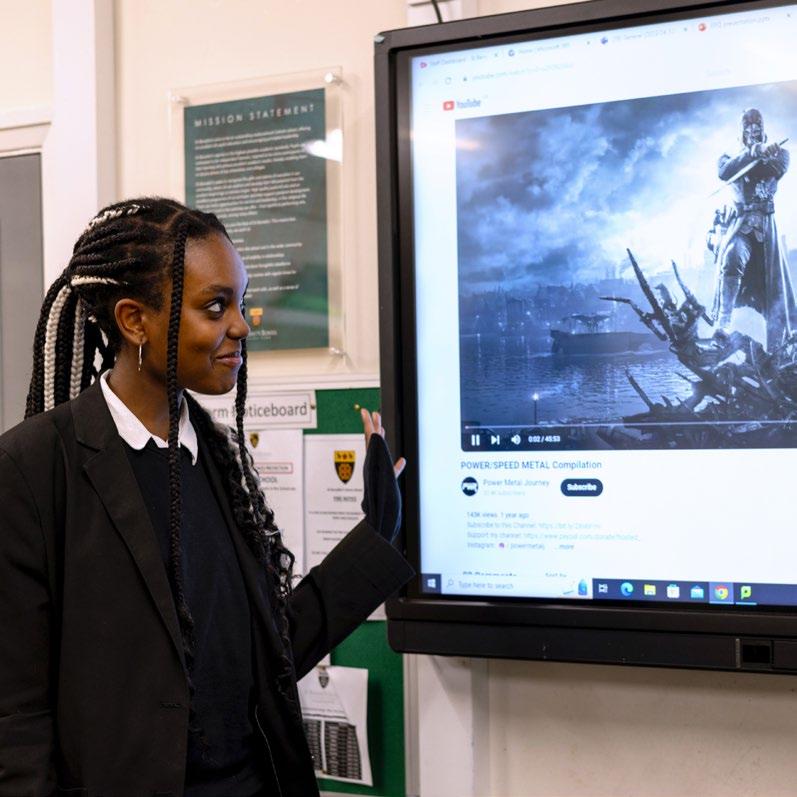
Through an active, engaging and energetic weekly lesson of Theology and RE, everyone in the Sixth Form takes part in the core religious education course, debating and exploring some of life’s big
questions such as “Does God exist?”, “Why is there evil and suffering in the world?” and “What is the nature of religious experience?”.
